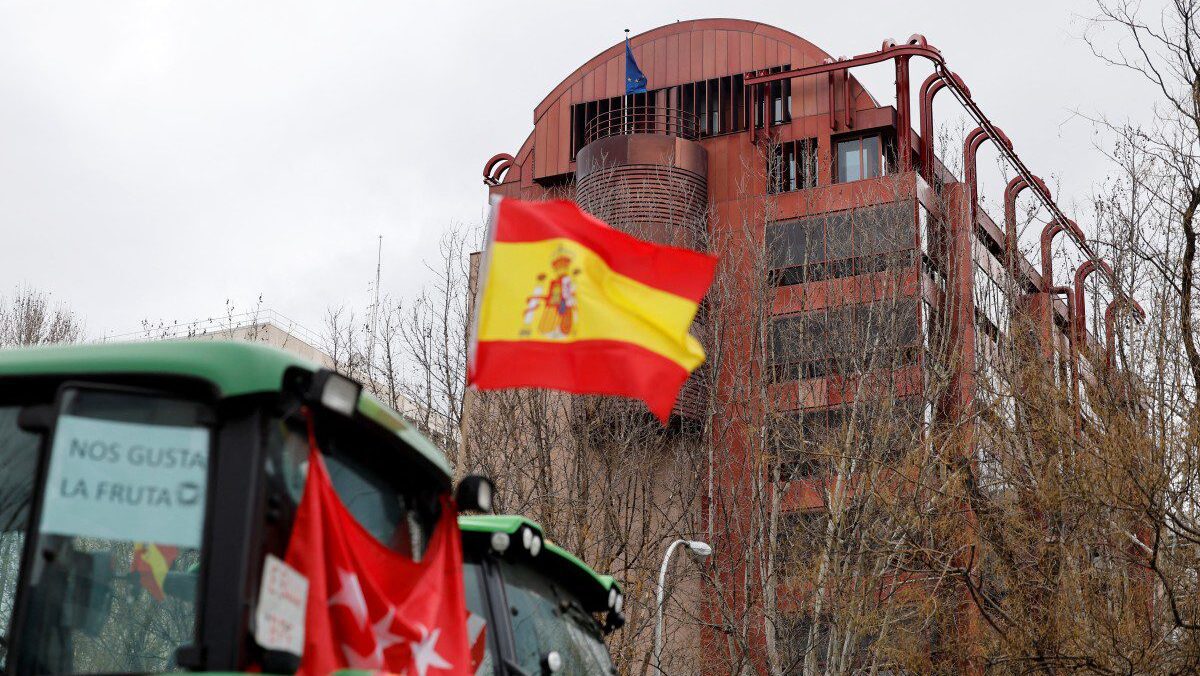
Tractors drive during a farmers protest in front of the Representative Office of the European Commission in Madrid, on February 26, 2024. Spanish farmers and livestock breeders demanding product prices to cover their production costs, and for non-EU imports to face the same regulations they do, resume protest as EU agriculture ministers meet in Brussels on February 26, 2024. Spanish farmers are part of a wider movement that has seen roads blocked in France, Germany, Italy, Poland and Greece, among other countries.
Photo: OSCAR DEL POZO / AFP
Simultaneous with protests in Brussels, Spanish farmers and fishermen kept up the pressure on Spain’s agriculture minister on Monday.
Some 100 tractors and thousands of farmers and fishermen moved through the heart of the Spanish capital starting from the Ministry of Farming, Fisheries, and Food to the EU’s headquarters in the city. Farmers protested under the theme “The countryside demands support, respect and recognition” in a demonstration organized by the country’s principal farmers associations.
Protesters carried Spanish flags and signs reading “Our end will be your hunger”—mirroring a sign in the Brussels demonstrations saying “Notre fin sera votre faim”—and “No to Agenda 2030.” Some marched with a stuffed animal head and a few flares and firecrackers were thrown, according to Agencia EFE.
Fishermen gave out 1,000 calamari sandwiches, using the gastronomic icon of Madrid to remind people of the importance of fishing. Among other concerns, they are asking the government to lower VAT on fish and seafood to encourage consumption, which has dropped, and decrease reliance on imports of fish and seafood from Morocco.
With farmers across Europe protesting and making similar demands about ending unfair competition, lowering bureaucracy for the subsidies of the Common Agricultural Policy (CAP), and reducing burdensome environmental regulations, EU agricultural ministers are set to discuss and vote on the flexibility of the CAP. Spanish agriculture minister Luis Planas is also going to insist on the negotiation of ‘mirror clauses’ in trade agreements that would require imports to be produced according to the same standards that EU farmers have to follow.
In Spain, there are also specific essential reforms that farmers need, such as changes to the Food Chain Law, agricultural insurance better aligned with the needs of producers, and investments in irrigation infrastructure.
In an interview with Spanish media on Sunday, Planas promised to propose “a great rural pact,” to make some environmental regulations more flexible, and to simplify the administrative requirements for subsidies.
